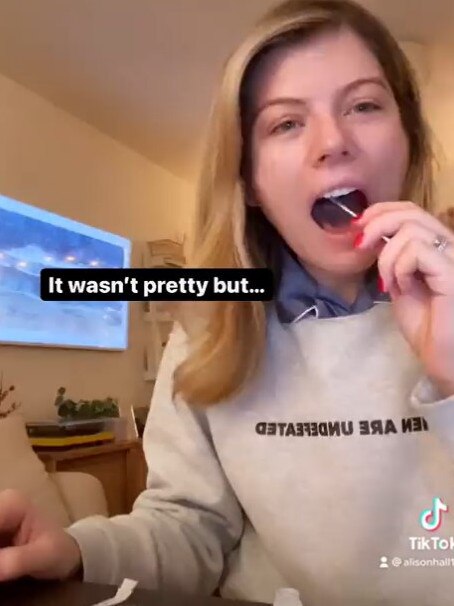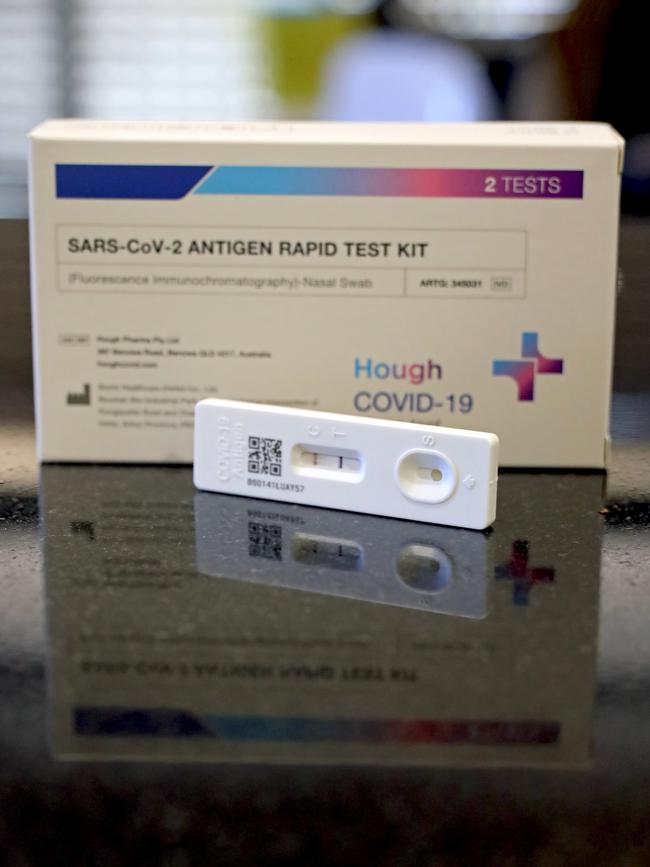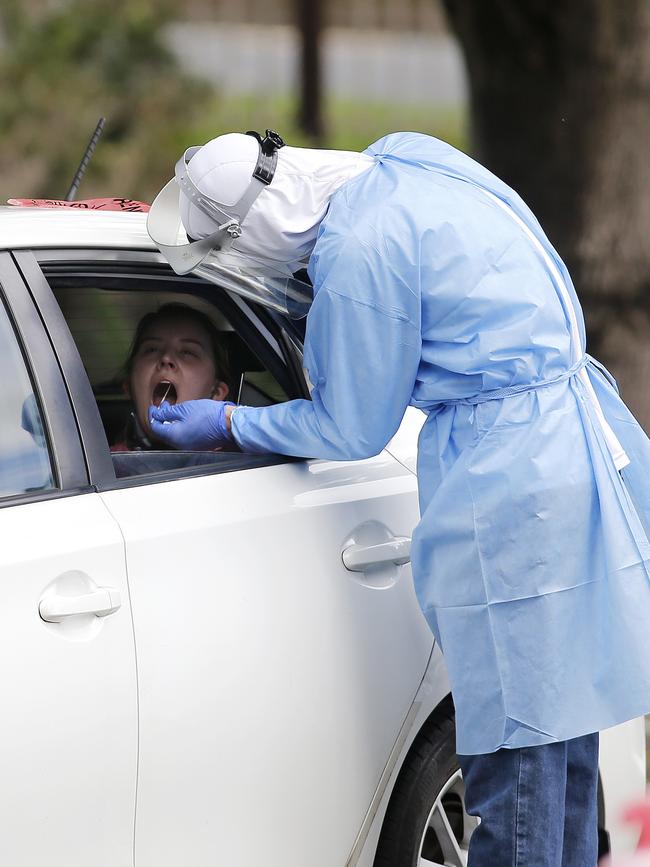Social media users uncover rapid antigen test issue
Social media users believe they’ve found a trick while using rapid antigen tests that can give you a different result - but experts have warned against trying it at home.
Social
Don't miss out on the headlines from Social. Followed categories will be added to My News.
Social media users believe they’ve uncovered a trick to get more accurate Covid results using at-home test kits, but health authorities have warned against it.
A New York journalist, who had symptoms, posted a video of herself taking a swab from her nose and getting a negative result, and then taking a swab from her throat and getting a positive result.
As of Wednesday, the video has been viewed more than 3.8 million times on TikTok alone, with others jumping on the “trend” claiming to share similar experiences. A #swabyourthroat hashtag has also picked up traction on Twitter.
Prominent US epidemiologist Dr Eric Feigl-Ding joined the hashtag advocating for people to swab their throat, saying Omicron is very different from other variants and therefore, we need to adapt testing strategies.
But Australia’s federal health department, as well as the US Food and Drug Administration, issued warnings against the improper use of at-home testing kits.


None of the 18 rapid antigen tests approved for use in Australia instruct the use of a throat swab. The majority are nasal tests, and the few oral fluid and saliva tests involve spitting or swabbing from the mouth.
Unlike in the US and Australia, the UK does have at-home rapid test kits that require a nose and throat swab.
Australia’s department of health said it was important people followed the instructions exactly as they were stated on the test kits as they had been developed to specifically work with certain types of samples.
“Not using the test properly, including using the wrong sample type, can result in incorrect results including false positive or false negative results,” a spokeswoman said.
Infectious diseases physician and microbiologist Professor Peter Collignon, from Australian National University, told news.com.au it’s possible the difference in results was because people were not doing the nose swab as well as they were the throat swab.
“The front of your nose will probably not be as good as the back of your nose and if you do a proper throat swab where it goes to the back of your throat, you’re getting more of the back of your nose as well,” he explained.
“It’s uncomfortable in your nose. There’s not many people who had it done (during PCR tests) who thought it was a pleasant experience so when you’re doing it to yourself you tend to potentially not do it as deep so to speak.”


As for whether he would recommend doing a throat swab on the rapid antigen tests, Prof Collignon said people should follow the directions of the manufacturer because they’ve all been tested under different regimes.
“But I think this is intrinsically one of the issues with any of these rapid antigen tests – if you don’t have any symptoms they may only have a 50 per cent take up in the real world, and that’s to do with sampling as well,” he added.
“If you’ve got symptoms, they seem to be 80-90 per cent (accurate), but again not as good as PCR and some of that is the testing method itself and the other thing can be sampling and who’s doing the sampling.”
Prof Collignon said he believed if you have symptoms, you should isolate whether you test negative on a rapid antigen test or not. He advised getting a PCR for a more accurate result but recognised it wasn’t a good idea to queue for hours with other people.
A move toward using more rapid antigen tests instead of PCR tests was announced last week in response to an overwhelmed testing system that has seen Australians queue in testing lines for hours and not get their results for days.
Following a national cabinet meeting on Wednesday afternoon, Prime Minister Scott Morrison announced further changes to testing – including the use of rapid antigen tests for close contacts at testing sites.
Originally published as Social media users uncover rapid antigen test issue




